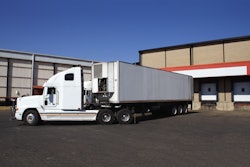Trucking news and briefs for Friday, July 19, 2024:
Trucking conditions turn positive in May
Trucking companies saw a big market improvement in May, according to the latest release of the Trucking Conditions Index (TCI) from FTR.
FTR reported its TCI entered positive territory in May, rising to 2.24 from the -1.95 reading for April. The biggest driving factor behind the positive trend was falling diesel prices and a freight rate environment that was less negative for carriers than has been the case over the past couple of years.
“Trucking is in the initial stages of a recovery, although it might be months before market participants perceive much change,” said Avery Vise, FTR’s vice president of trucking. “A big piece of May’s positive TCI was lower fuel costs, but freight rates also were much less unfavorable for carriers than usual since the fourth quarter of 2022.”
FTR cautions that May’s positive reading is likely an outlier, as readings are expected to return to negative territory through at least late this year.
“We expect rates to be mostly stable overall through late this year, with spot rates leading the way,” Vise added. “However, the capacity overhang remains large and will delay anything that could remotely be called a rebound.”
FMCSA denies HOS waiver request
The Federal Motor Carrier Safety Administration has denied a specialized carrier’s request for an exemption from certain hours of service regulations.
Reiman Corp. late last year petitioned FMCSA to allow its drivers, who transport latex embedded in cement for use at highway construction sites, to operate under the same hours-of-service exception provided for “specially trained drivers of commercial motor vehicles that are specially constructed to service oil wells.”
Reiman said it considers its operations similar to that of oilfield operations, in part because “its drivers are specially trained to operate vehicles that are specially designed to transport specific products with vehicle-mounted equipment,” FMCSA’s notice said.
The company requested that its drivers be allowed to record waiting time at construction sites as “off-duty,” adding that waiting time would not be included in calculating the 14-hour period. If granted the waiver, Reiman drivers would not be eligible to use the short-haul provisions, the company noted.
In denying the request, FMCSA said Reiman did not include alternatives to compliance with the 14-hour rule, such as another fixed driving window during which all driving must be completed.
“The proposed relief from the 14-hour rule would enable miscellaneous off-duty periods at the construction sites to be excluded when determining whether the drivers may operate the CMV during the latter part of the workday,” FMCSA said. “This would create the potential for fatigued drivers, subject to long workdays and without consideration of whether the driver had accumulated 14 hours of on-duty time before completing their driving tasks for the day.”










